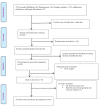Heat-Stable Carbetocin in the Management of Postpartum Haemorrhage in Low- and Middle-Income Countries: A Comprehensive Review of Clinical Evidence, Cost-Effectiveness, Implementation Challenges and Adoption Strategies
- PMID: 40487679
- PMCID: PMC12145113
- DOI: 10.2147/IJWH.S515252
Heat-Stable Carbetocin in the Management of Postpartum Haemorrhage in Low- and Middle-Income Countries: A Comprehensive Review of Clinical Evidence, Cost-Effectiveness, Implementation Challenges and Adoption Strategies
Abstract
Introduction: Postpartum haemorrhage (PPH) remains a leading global cause of maternal deaths, with over 70,000 annual deaths. Low- and middle-income countries disproportionately bear this burden, often due to compromised cold chains for oxytocin and insufficient staff training.
Methods: This review synthesized thirty publications on heat stable carbetocin (HSC) published from January 2018-March 2025. Eligible studies include randomized trials, systematic and narrative reviews, cost or economic evaluations, and implementation studies. Study findings were categorized into clinical efficacy and safety of HSC, cost-effectiveness, and adoption barriers and facilitators from field implementation, and sustainability strategies.
Results: Several large-scale trials, especially the CHAMPION trial, demonstrated that HSC is clinically non-inferior to oxytocin. In a pilot study from Nigeria (n = 18,364 deliveries), 56% of women received HSC for PPH prevention and PPH incidence dropped to 0.8%. Cost models from India estimated that HSC could prevent about 5,500 additional PPH cases and save five maternal lives per 100,000 births when priced comparably to oxytocin. Programs in Kenya and conflict-affected South Sudan achieved >90% coverage of HSC by implementing WHO policy updates, pooled procurement, simulation drills for frontline health workers, and appointing "PPH champions". Awareness of uterotonics and PPH danger signs among postpartum women increased from 48% to 81% after community-based intervention in Kenya. The thermostability of HSC (up to three years without refrigeration at a temperature of ≤30°C) addresses gaps in cold chain associated with oxytocin and reduces wastage from degradation. Integrating HSC with tranexamic acid and other postpartum haemorrhage bundle elements further improved maternal outcomes.
Conclusion: Heat-stable carbetocin offers a viable, cost-effective uterotonic strategy in LMIC settings. Consistent training, supportive supervision, regulatory oversight, and domestic funding, including private sector investment, are critical to achieving widespread adoption of HSC in LMIC. Expanding HSC across resource-limited settings could substantially reduce PPH-related deaths and accelerate maternal survival goals.
Keywords: EMOTIVE; heat-stable carbetocin; humanitarian setting; low- and middle-income countries; postpartum haemorrhage; tranexamic acid.
© 2025 Adnani et al.
Conflict of interest statement
The authors report no conflicts of interest in this work.
Figures
References
-
- Salihu HM, Umar AA, Azuine RE, Azuine RE. Special collection: implementation research evidence for prevention and treatment of postpartum hemorrhage in high-burden low- and middle-income countries. Int J MCH AIDS. 2024;13(Suppl 1):S1–S3. PMID: 39629310; PMCID: PMC11583812. doi: 10.25259/IJMA_35_2024 - DOI - PMC - PubMed
-
- Fievet L, Hewgill S, Li W, Ourumis E, Paleologou A, Pecore R. A leading threat to maternal health: complications related to pregnancy and childbirth. Reprod Health. 2024;20:116. doi: 10.1186/s12978-023-01657-1 - DOI
-
- Amode OA, Negedu OV, Joseph JT, et al An Implementation research study on uterotonics use patterns and heat-stable carbetocin acceptability and safety for prevention of postpartum hemorrhage in Nigeria. Int J MCH AIDS. 2024;13(Suppl 1):S38–S45. PMID: 39629305; PMCID: PMC11583818. doi: 10.25259/IJMA_1_2024 - DOI - PMC - PubMed
Publication types
LinkOut - more resources
Full Text Sources



